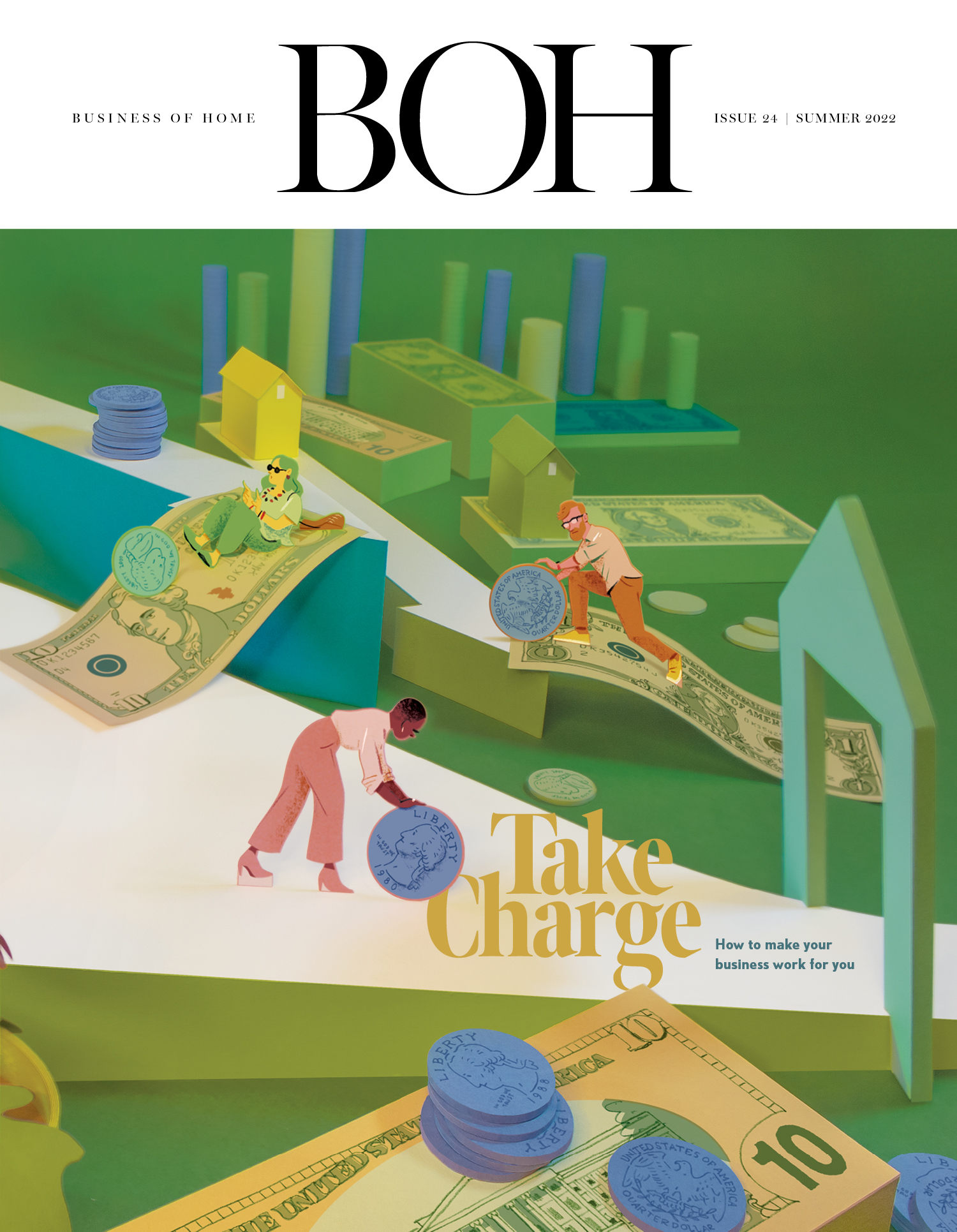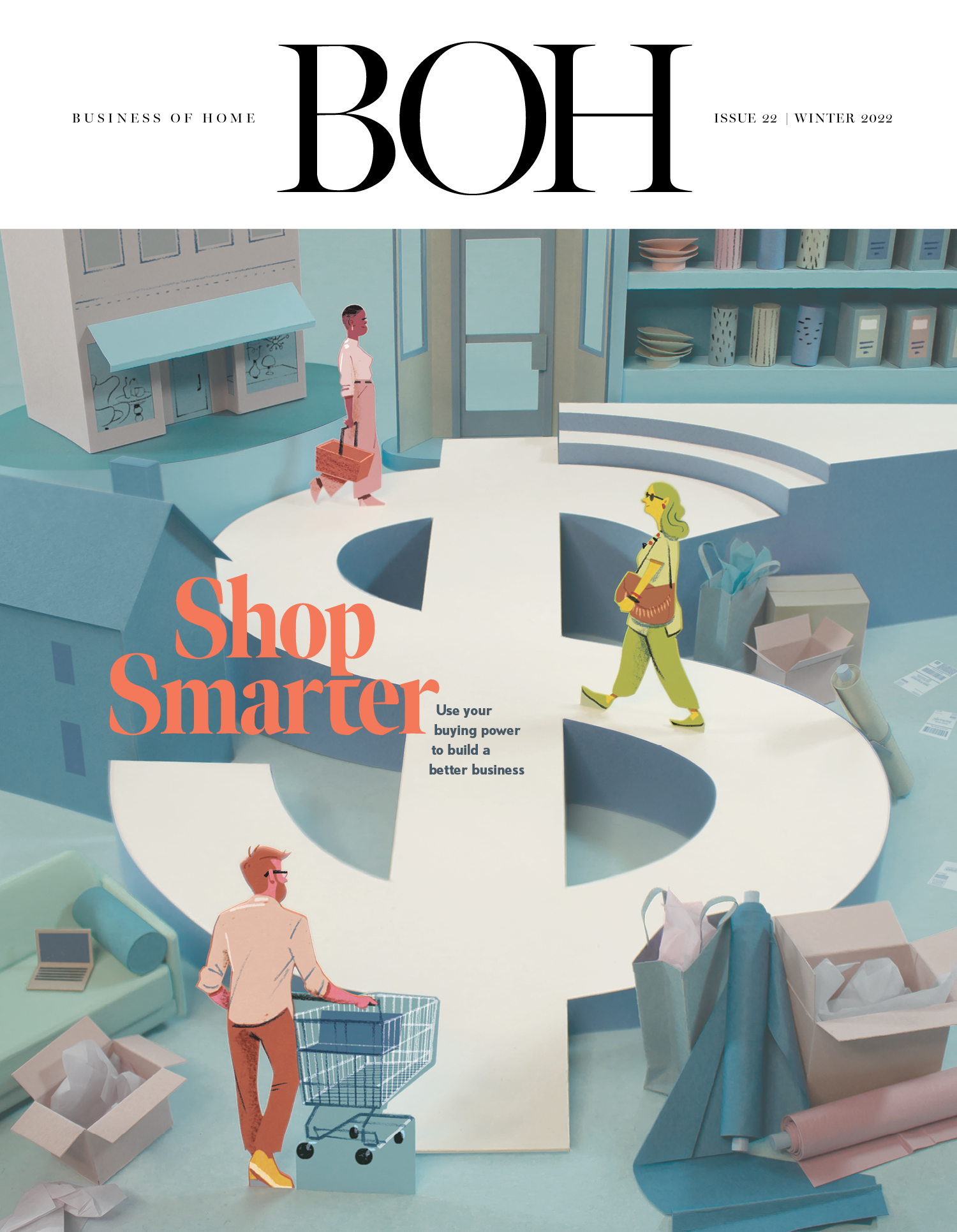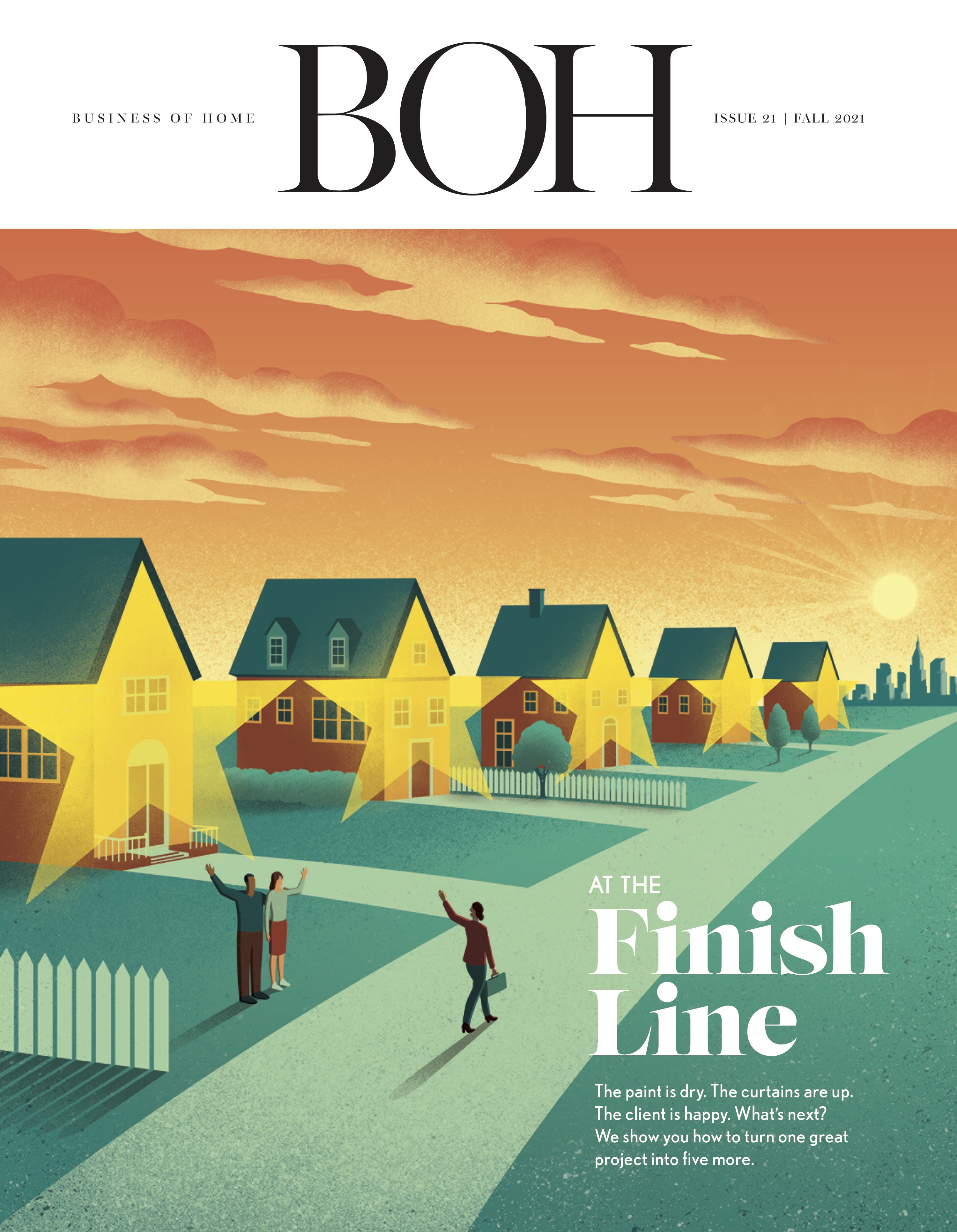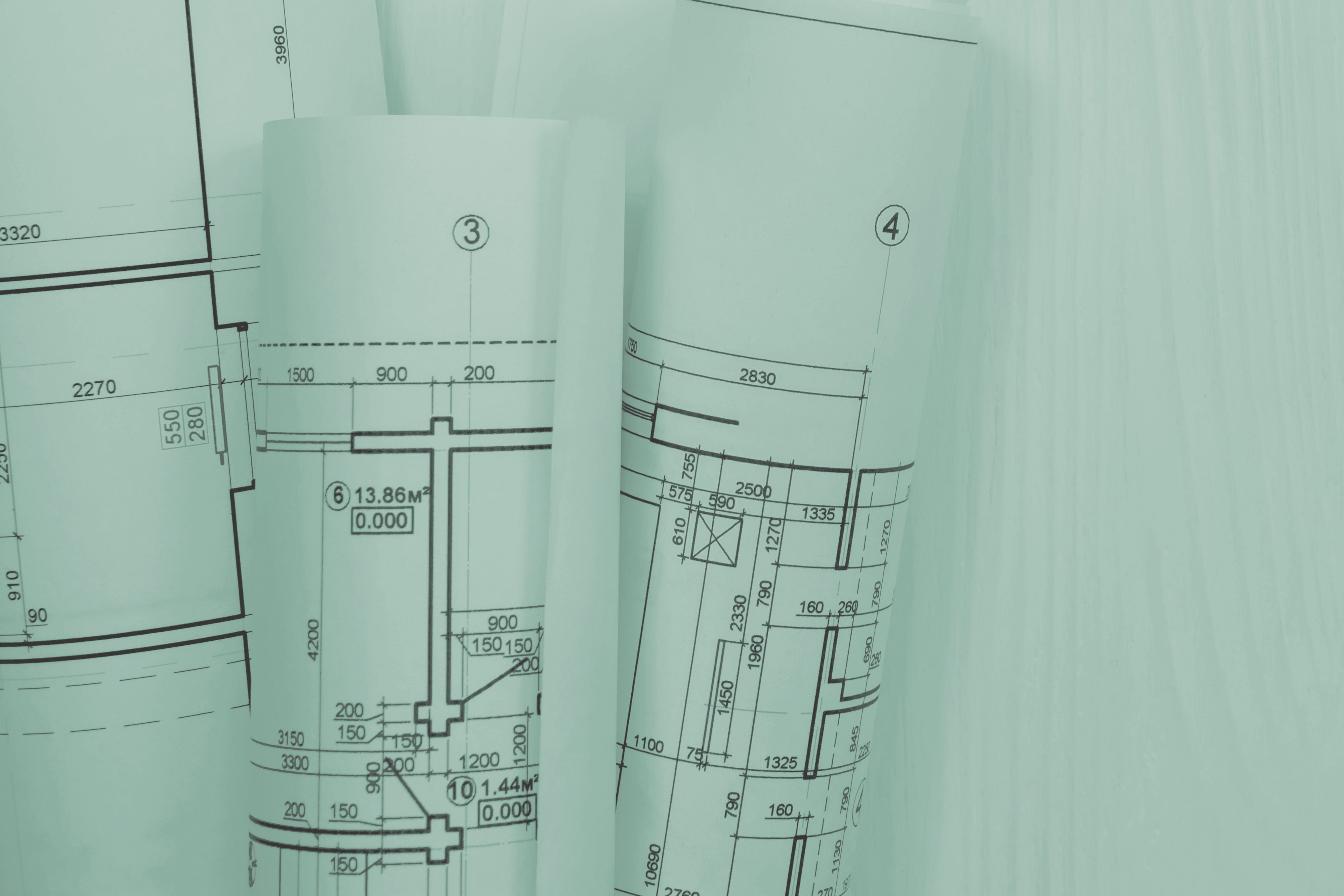In 2018, a couple came to me for help turning their shared business around. At the time, their revenue was $1.5 million, and they were terrified of failing. Cash flow was tight, and their company was barely profitable. As a result, they weren’t sleeping well and were experiencing relationship stress. Does any of this sound familiar?
Most designers get into business because they are creative. That tends to mean that they have little to no business training. But with a bit of determination, you can take the fear out of your finances.
If you don’t know what you don’t know, here are the most essential business skills every entrepreneur—even creative ones—must develop:
- How to read an income statement: This snapshot of your business, year-to-date or month-to-date, provides a current picture of your business health.
- How to read a balance sheet: This tells you about your past transactions, allowing you to see how much you own and owe—as well as the difference between these values, which is your equity in the business.
- How to create a budget: If you don’t know what it costs to operate your business and you don’t manage a budget, you can get in financial trouble. Budgets are essential tools of well-run businesses.
- How to create a cash flow statement: Tracking where money is coming and going in your business gives you visibility into your firm’s financial future. Depending on the phase, some projects are likely bringing in cash, while others are in the purchasing phase and require major spending—a cash flow statement will show you where money is coming in and going out. Then add in what it costs to operate your business. When you tally it all up, do you have positive cash flow at the end of each month? In other words, do you have money left over after paying the bills?
It is also essential to understand that profit and cash flow are more important than revenue, and what levers to pull in your business to make more money.
Running a design business is like building a house: You need to know how much it will cost to build it before you go to the bank to get a loan. Once you get the loan, you must track your expenses—otherwise, you’ll run out of money long before the house is finished.
An architect client once swore to me that she “just couldn’t understand the numbers,” and that “they went over her head.” So I walked her through her financial statements, explaining each aspect in very simple terms. At the end of an hour, she was in tears because she finally got it.
Even better, you will learn to love the numbers when you see your bank account increase and you become financially free. That’s what happened to the couple I mentioned before. Today, they have nearly two dozen employees, and their seven-figure net profit is almost as much as their revenue was when they first came to me.
They understand their numbers. So can you.
For insights and analysis on how designers across the country run their firms, download the 2023 Interior Design Business Survey report, presented by Pearl Collective, Interior Talent and Business of Home.
____________
Gail Doby is co-founder of Pearl Collective (formerly Gail Doby Coaching & Consulting), an interior design business consultancy that helps designers, architects and other creatives increase their profitability. Doby ran her own design firm in Denver for nearly 20 years and has a degree in finance and banking. Since 2008, she has been helping designers scale their businesses profitably and reach financial freedom. As a coach, mentor and business transformation specialist, she shares innovative ways to overcome the roadblocks, challenges and detours creative entrepreneurs face. She is also the bestselling author of Business Breakthrough: Your Creative Value Blueprint to Get Paid What You’re Worth. Her goal is to empower design industry clients to differentiate themselves, drive measurable results, achieve business projections, and create personal satisfaction through game-changing strategies and business practices.






























